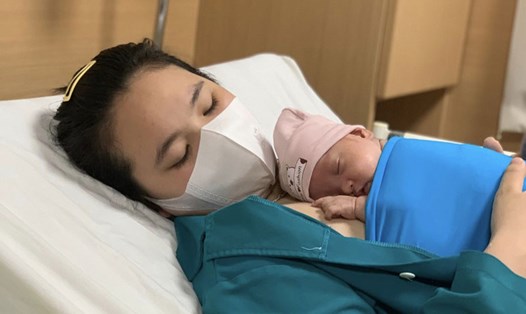Premature babies can be classified based on gestational age.
- Extremely preterm: Born before 28 weeks
- Very preterm: Born before 32 weeks
- Moderately preterm: Born between 32 and 34 weeks of gestation
- Late preterm birth: Born between 34 and 37 weeks
Common conditions in premature babies
Inability to maintain body temperature
“Preterm babies often have difficulty regulating their body temperature due to their immature skin and low body fat. This can lead to hypothermia, which can be dangerous for their delicate systems,” says Dr C Sai Narasimha Reddy, Consultant Paediatrician and Neonatologist, Gleneagles BGS, Kengeri Hospital, (Bengaluru, India).
How to handle
Premature babies are often placed in incubators or radiant warmers to maintain their body temperature. Appropriate clothing and environmental control also help provide the necessary warmth.
Respiratory distress syndrome (RDS)
RDS is common in premature babies, especially those born before 34 weeks. Their immature lungs do not produce enough surfactant, a substance important for keeping the lungs expanded.
How to handle
Advances in neonatal care have improved outcomes for babies with RDS. Key treatments include:
- Antenatal corticosteroids (ANS): Given to the mother before birth to accelerate lung maturation in the fetus.
- Surfactant therapy: Injecting surfactant directly into the lungs to improve respiratory function.
- Respiratory support: Techniques such as continuous positive airway pressure (CPAP) or mechanical ventilation help maintain adequate oxygen levels.
Sepsis (infection)
“Preterm babies are at higher risk of infection due to their immature immune systems,” says Dr. Reddy. “Infections can originate from the mother or from frequent exposure and invasive procedures.”
How to handle
To control infection, strict hygiene practices, including frequent hand washing and the use of incubators, are required. If infection is suspected, blood cultures will guide appropriate antibiotic therapy. Additional complications such as hypoglycemia or apnea may also be addressed during treatment.
Nutrition and food issues
Premature babies often have difficulty feeding due to lack of coordination between sucking and swallowing, and an underdeveloped digestive tract.
How to handle
Initially, these babies receive nutrition through intravenous feeding called total parenteral nutrition (TPN). As they grow and their ability to suck and swallow improves, they can transition to tube feeding with breast milk.
Increased bilirubin in the blood (jaundice)
Jaundice is common in premature babies, usually peaking 3-7 days after birth. This condition results in yellowing of the skin due to high levels of bilirubin.
How to handle
Treatment for jaundice usually involves phototherapy, in which the baby is placed under a special blue light that helps break down bilirubin in the skin. The baby's eyes are covered to protect them from the light.









